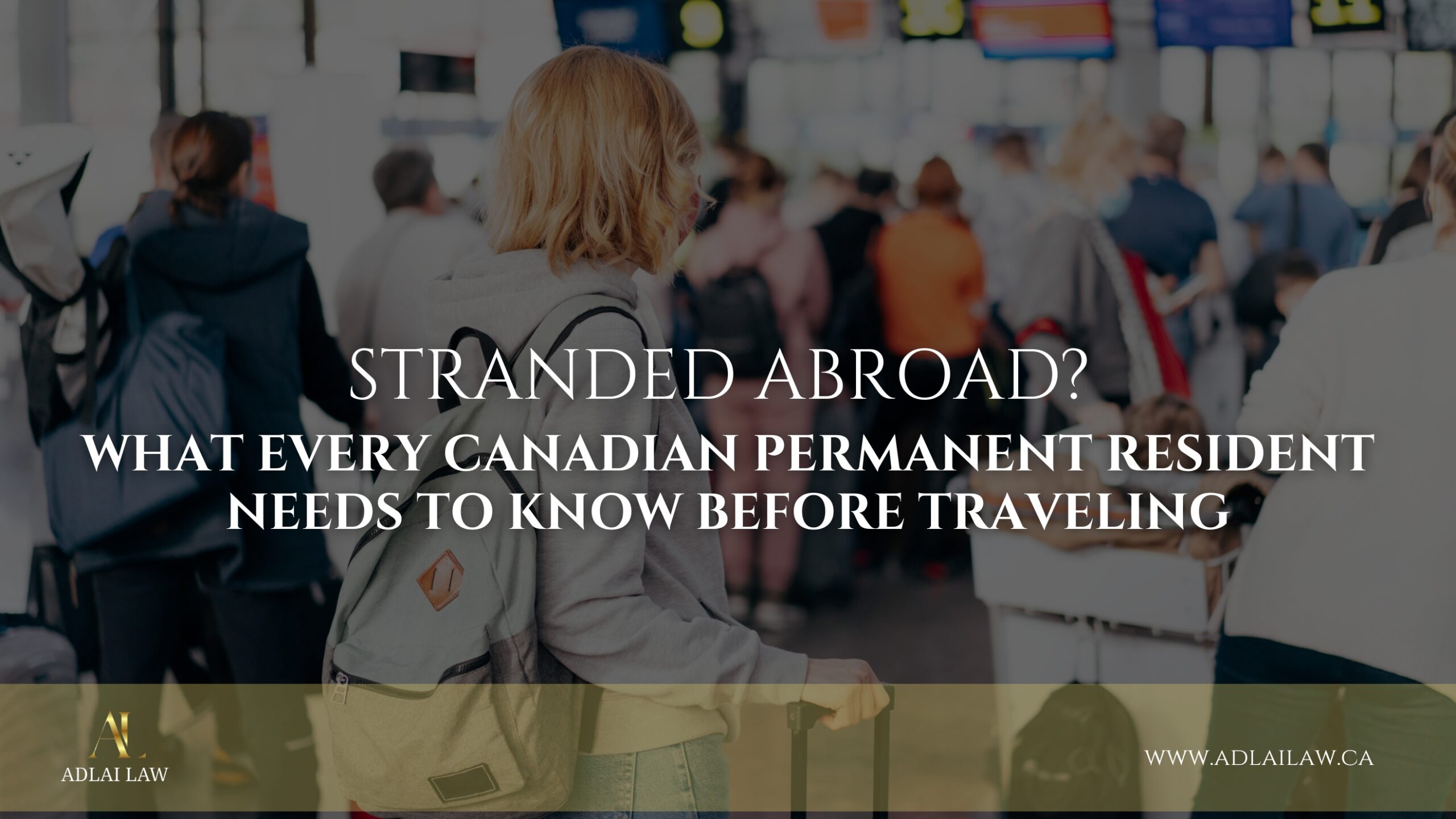How to Protect Yourself from Identity Theft and What to Do If It Happens
Imagine planning a trip abroad, only to find yourself stuck in another country because your identity was stolen — and you’re suddenly without proof of who you are. That’s the situation Ottawa resident Viviane Yao found herself in, according to a recent CBC News report.
Yao, a Canadian permanent resident, who was away in England when her wallet — containing her PR card and crucial identification — was stolen. What followed was a bureaucratic nightmare: she couldn’t board her flight home, and the Canadian government’s emergency travel documents were slow to arrive, with limited support on the ground.
This real-life experience sheds light on a critical but often overlooked risk for permanent residents traveling internationally: identity theft and travel document loss.
So how can you avoid this kind of nightmare — and what should you do if it happens to you?
Let’s break it down.
Before You Travel: Proactive Steps to Protect Your Identity
-
Travel with Copies (but store them smartly)
Always bring certified copies of your passport and PR card — and keep them separate from your originals. Consider leaving one copy with a trusted person in Canada. -
Go Digital (Securely)
Upload encrypted digital versions of your IDs to a secure cloud storage service (like Google Drive, Dropbox with two-factor authentication, or an encrypted USB drive). -
Use a Travel Wallet or Neck Pouch
Keep your IDs in an RFID-protected wallet or a hidden pouch worn under your clothes. Avoid putting essential documents in checked luggage. -
Register with the Canadian Government
Use the Registration of Canadians Abroad (ROCA) service, even if you’re a permanent resident. This helps Canadian authorities assist you faster during emergencies.
If Your ID Is Stolen: Steps to Take Immediately
-
File a Local Police Report
Document the theft with local authorities — this is crucial for both your safety and for Canadian authorities to process replacements. -
Contact the Canadian Embassy or Consulate
They can provide emergency travel documents and guide you on the next steps. But be warned: their help might be limited, as Yao’s story painfully shows. -
Reach Out to Legal Support in Canada
This is where Adlai Law steps in. If you’re facing delays, denials, or immigration complications after losing your ID abroad, you need legal advocacy to get results quickly and safely.
How Adlai Law Can Help
At Adlai Law, we understand how distressing it is to be stranded in a foreign country, especially without proper documentation. Our legal team assists:
-
Canadian permanent residents who’ve lost travel documents
-
Individuals facing long processing times or complications with IRCC
-
Travelers needing urgent legal advice while abroad
We advocate on your behalf — liaising with Canadian immigration officials, speeding up application processing where possible, and ensuring your rights as a permanent resident are respected.
Don’t Wait for a Crisis to Happen
Viviane Yao’s ordeal is a warning for all of us: international travel can expose your legal status to unexpected vulnerabilities.
Let Adlai Law be your legal safety net — whether you’re planning your trip or navigating the aftermath of a crisis. With immigration law at our core, we’ve helped countless individuals regain their peace of mind and their place in Canada.
Need urgent help or a travel consultation?
Contact Adlai Law today:
📧 info@adlailaw.ca
📞 (519) 259-1447

